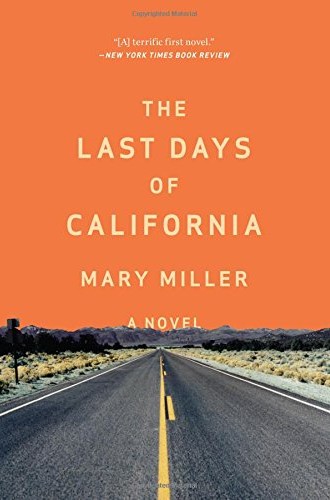Shall we be changed?
Mary Miller’s The Last Days of California exactly captures an important aspect of the sort of rapture-ready Christianity I was raised and educated in: the unwillingness to face mortality that’s probably at the root of many people’s eager embrace of an imminent apocalyptic eschatology. Strangely enough, until I cracked open this novel, I hadn’t realized that my one-time yearning for the rapture was a way to avoid acknowledging that I’ll die one day.
“It’s how we deal with death,” one of Miller’s minor characters says. “It’s human nature to want the world to end when we end.”
The novel is insightful as to the motivations for belief and doubt, many of which resonated strongly with my own experience: doubt taking the form of yearning to believe. As Jess, the narrator, expresses it, “I wanted to believe we were special. I wanted to believe all of it—heaven and happiness and joy unlike anything I’d ever known.”
Jess’s beautiful older sister, Elise, sees in the expectation of rapture a simple refusal to engage with the complexity of life: “We can’t control war or unemployment or drug addiction or poverty, but we can predict an end to these things, which makes them not seem so bad.”
As one who used to believe such things and then came to similar conclusions as to their psychological meaning, I find Miller’s analysis incisive. Yet Last Days falls flat for me. Too much of it simply feels false, as if Miller learned what she knows of evangelicals from reading, say, the Left Behind series and a few articles about clergy sexual misconduct and father-daughter purity balls.
Jess and Elise’s father, whose religious fervor impels them to make the sojourn to California to witness the Second Coming, is two dimensional at best. “How are you?” asks a waitress, on the book’s very first page. “The world is passing away,” he declares, “but those who do the will of God will remain forever.” In my three decades of living among evangelicals, I have never heard even the most frighteningly devout people talk like that.
There are other things that Miller seems to miss. For one thing, people who believe that they’re on the eve of the rapture don’t really see themselves as having a great excuse to blow money, eat badly, and start doing such evil things as drinking alcohol and losing their virginity to strangers in hotel bathrooms. Instead, they advocate behaving in such a way that one needn’t be ashamed of what one is doing when Jesus does show up.
By the close of the novel, Miller does draw her characters in a sympathetic light. Their apocalyptic anticipation has not come to fruition, yet they are all transformed by the Great American Road Trip itself: Dad is going to go on a diet, Jess is going to stop using food to bury her feelings, Elise is going to stop being a vegetarian, and they are all going to try to be thankful for their family. Miller seems to be suggesting that while we all long for cataclysmic changes that come from outside ourselves, the truly meaningful changes are small ones.
It’s a worthy theme, to be sure. But Miller doesn’t manage to make a believer out of me.



